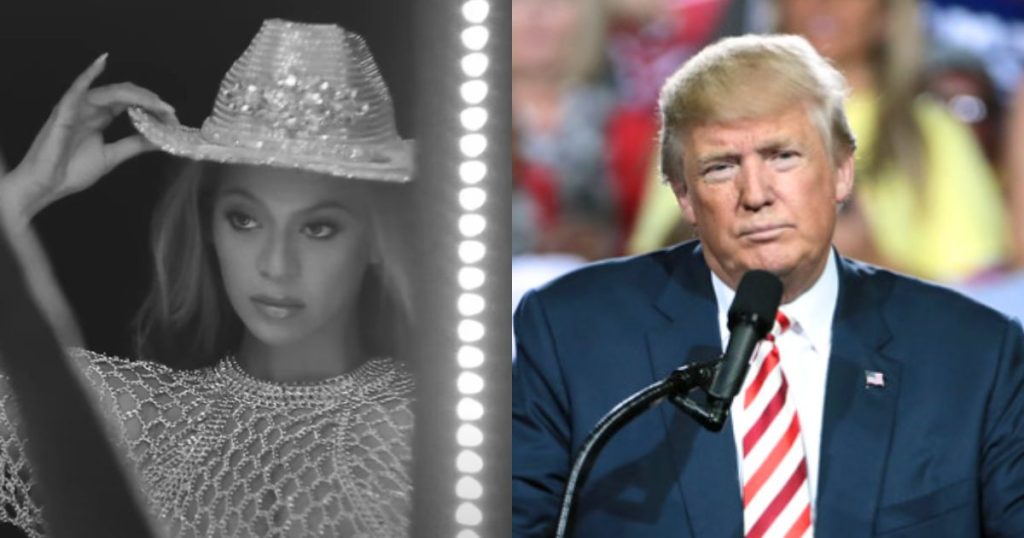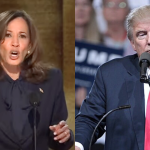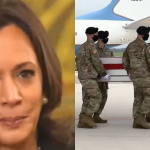In a dramatic clash of music and politics, president Donald Trump’s campaign has been forced to remove a video featuring Beyoncé’s hit song “Freedom” after receiving a cease-and-desist notice from the singer’s representatives.
The incident has sparked a heated debate about the intersection of artistic rights and political messaging in the 2024 presidential race.
The controversy erupted when Steven Cheung, a spokesperson for Trump, shared a video on social media platform X depicting the Republican presidential hopeful disembarking from a plane.
The footage was set to the powerful strains of Beyoncé’s 2016 track “Freedom,” which has recently gained renewed significance as the unofficial anthem of Vice President Kamala Harris’ presidential campaign.
Billboard and Rolling Stone both reported that Beyoncé’s record label and music publisher swiftly intervened, demanding that Trump’s team halt the unauthorized use of the song.
USA Today reported that the Trump campaign complied, taking down the video from official channels, although it remained visible on Cheung’s personal account for some time afterward.
The outlet further noted that this incident highlights the ongoing challenges faced by political campaigns in navigating the complex landscape of music licensing and artist approval.
USA added that this is not the first time the Trump campaign has encountered pushback from musicians over the use of their work.
Many artists have objected to their songs being associated with political messages they don’t endorse, particularly in the contentious arena of presidential politics.
The situation is further complicated by the song’s recent adoption by the Harris campaign, the outlet highlighted.
“Freedom,” which features rapper Kendrick Lamar, has become a rallying cry for Harris supporters since she received official approval to use it in July.
The song has been prominently featured at campaign events and during the ongoing Democratic National Convention in Chicago.
While Beyoncé herself has not publicly endorsed any candidate for the 2024 election, the swift approval granted to the Harris campaign for the use of “Freedom” stands in stark contrast to the reaction to Trump’s unauthorized use.
This disparity has not gone unnoticed by political observers and music fans alike.
The Trump campaign’s struggles with music licensing come on the heels of another controversy involving pop superstar Taylor Swift.
The president recently shared what appeared to be AI-generated images on his social media platform, Truth Social, jokingly suggesting Swift’s support for his campaign.
This move raised eyebrows, given Swift’s previous expressions of disdain for Trump and his policies.
As the 2024 presidential race heats up, campaigns are increasingly turning to popular culture and social media to connect with voters.
The Beyoncé incident, however, serves as a reminder of the legal and ethical considerations that come into play when using artistic works for political purposes.
Source: Resistthemainstream






